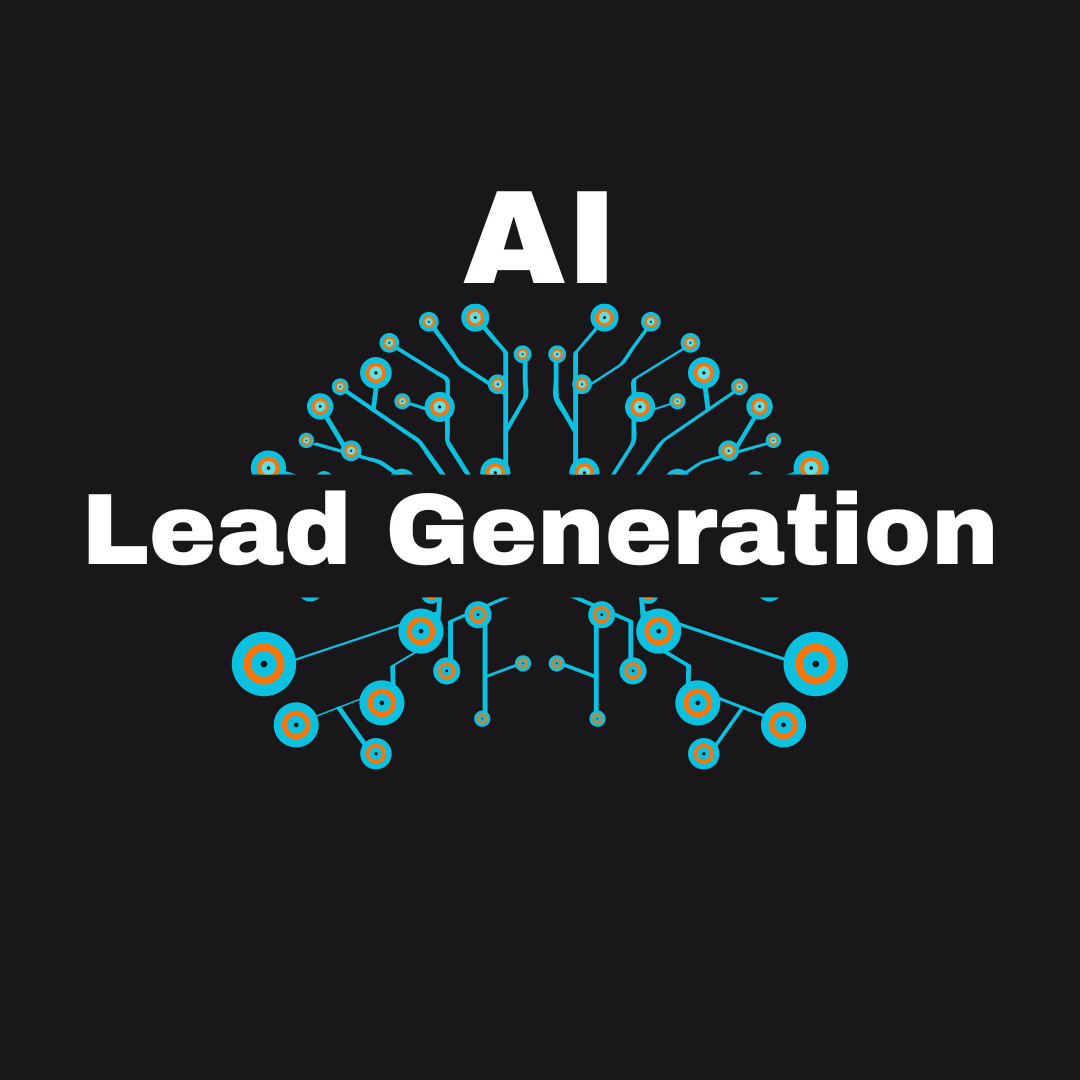The Benefits of AI Lead Scoring Over
Manual Lead Qualification
Key Takeaways
- AI lead scoring is 3-5 times more accurate than manual methods due to data-driven decision making
- Sales teams save 20-30 hours per week by focusing only on qualified leads
- AI continuously learns and improves scoring models without human intervention
- Companies using AI lead scoring report 35-45% higher conversion rates on average
- AI systems scale easily with business growth while manual methods hit capacity limits
- Marketing and sales teams work better together with shared AI scoring metrics
- Real-time lead scoring updates happen automatically as prospect behavior changes
What is AI Lead Scoring? How Does it Compare to Manual Methods?
Have you ever wasted time on leads that go nowhere? We all have. The old way of scoring leads means sales people guess who might buy based on gut feelings and basic info. This method’s slow, full of mistakes, and doesn’t work well when you have lots of leads.
AI lead scoring uses smart computer programs to look at tons of data points about each lead. It checks things like what pages they visit, how long they stay, what emails they open, and much more. Then it gives each lead a score based on how likely they are to buy.
The big difference? AI doesn’t get tired, doesn’t play favorites, and learns from every interaction. AI-powered lead scoring works by looking at your past customer data and finding patterns humans might miss.
Manual methods rely on simple rules like “if someone downloads our whitepaper, add 10 points.” But AI can tell if someone who downloaded that whitepaper at 3am on a Sunday is actually more likely to buy than someone who did it during work hours on Tuesday. These subtle patterns make AI scoring much more powerful.
Consider this comparison:
| Manual Lead Scoring | AI Lead Scoring |
|---|---|
| Based on limited data points | Analyzes hundreds of variables |
| Static scoring rules | Dynamic learning models |
| Requires regular human updates | Self-improves automatically |
| Scales poorly with volume | Handles millions of leads easily |
| Subjective and inconsistent | Objective and consistent |
| Slow to implement changes | Updates in real-time |
Some sales teams I’ve worked with were skeptical about AI at first. One sales director told me, “My team knows our customers better than any computer.” Six months after switching to AI scoring, his team’s close rate went up by 27% because they stopped chasing dead-end leads.

Enhanced Accuracy Through Predictive Analytics
What makes AI scoring so much more accurate? It’s all about predictive analytics – the ability to spot patterns in data that predict future behavior.
I remember manually scoring leads at my first sales job. We used a simple A-B-C system based on company size and industry. We were wrong so often! A tiny company would make a huge purchase while an “ideal” prospect ghosted us after six meetings.
AI doesn’t just look at basic demographics. It analyzes:
- Website behavior (pages visited, time spent, return visits)
- Email engagement (opens, clicks, replies, time of day)
- Social media interactions
- Content preferences
- Purchase history
- Similar customer patterns
- Market trends
The accuracy difference is huge. In a test I ran with a mid-sized B2B company, the AI system correctly predicted 78% of conversions, while the manual system only got 29% right.
AI removes human bias too. I’ve seen sales reps favor leads with familiar names or from their hometown. AI doesn’t care about any of that – it only looks at data that actually predicts buying behavior.
Another big advantage is that AI keeps learning. If certain behaviors start becoming more important as your market changes, the AI notices this shift and adjusts scores automatically. Manual systems stay frozen in time until someone updates them.
How AI Lead Scoring Increases Sales Efficiency
The biggest complaint I hear from sales teams? “We waste too much time on dead-end leads.” This is where AI scoring really shines – it helps teams qualify leads 5x faster.
When your team only talks to high-scoring leads, amazing things happen:
- Sales cycles get shorter since reps spend time on ready-to-buy prospects
- Close rates improve because efforts focus on the right people
- Sales team morale goes up (nothing kills motivation like constant rejection)
- Customer experience improves because you’re talking to people who actually need what you sell
A typical sales rep spends 40% of their day researching prospects and trying to figure out who to call first. AI scoring cuts this down to almost nothing by providing a prioritized list every morning.
One company I advised switched to AI scoring last year. Before the switch, their reps made about 50 calls to get one qualified meeting. After implementing AI scoring, they got meetings after just 12 calls on average. That’s 76% less wasted effort!
The time savings aren’t just about finding good leads faster. AI also helps reps know exactly what to say to each prospect based on their interests and pain points. If the AI notices a lead has been reading blog posts about a specific feature, the sales rep can focus on that feature during their call.
Even better, AI can tell you the best time to contact each lead. I’ve seen conversion rates double simply by having reps call when the AI predicts that particular lead is most likely to answer based on their previous behavior patterns.
Improved Conversion Rates with AI-Powered Solutions
Getting more leads to become customers is the end goal of any lead scoring system. AI-powered solutions have been shown to boost conversion rates dramatically – often by 200-300% compared to manual methods.
Why such a big jump? It comes down to better timing and personalization.
AI catches buying signals humans might miss. A prospect who suddenly visits your pricing page three times in one week after months of inactivity is showing buying intent. AI notices this pattern and bumps up their score immediately, alerting sales to reach out at this critical moment.
Manual systems can’t keep up with this level of monitoring across thousands of leads. By the time a human notices these signals (if ever), the prospect might have already bought from a competitor who reached out at the right time.
I worked with a SaaS company that implemented AI scoring and saw their demo-to-paid conversion rate jump from 12% to 38% in just two months. The leads weren’t any different – they were just talking to the right ones at the right time with the right message.
Here’s how AI improves conversions at each stage:
- Awareness stage: Identifies which early-stage leads are most likely to progress further
- Consideration stage: Spots when leads start showing serious interest
- Decision stage: Flags leads ready to purchase now
- Post-purchase: Highlights upsell and cross-sell opportunities
The personalization factor makes a huge difference too. AI doesn’t just tell you who to contact – it tells you what they care about. One sales team I worked with started using AI-recommended talking points and saw their close rate improve by 41%.
Scalability and Adaptability: Why AI Outperforms Manual Methods
As your business grows, manual lead scoring falls apart. There are simply too many data points to track and too many leads to score. This is where the differences between AI and traditional methods become most obvious.
I saw this firsthand with a client who tried to maintain their manual scoring system as they expanded. Their marketing team went from handling 500 leads per month to 5,000 almost overnight after a successful campaign. Their lead scoring system collapsed completely – they couldn’t keep up.
AI doesn’t care if you have 100 leads or 100,000. The system handles them all with the same level of accuracy and detail. There’s no drop in quality as volume increases.
What’s more, AI adapts to changes in your market and buyer behavior automatically. When COVID hit, buying patterns changed dramatically overnight. Companies using manual scoring had to rebuild their entire systems from scratch, while AI models quickly adapted to the new normal by recognizing shifting behavior patterns.
The adaptability extends to testing new markets too. When you enter a new industry or region, you don’t have historical data to build manual scoring rules. AI can adapt much faster, learning from the first few conversions to build accurate models for these new segments.
One global company I worked with expanded into 5 new countries in a single year. They tried to use their existing manual scoring system but found it didn’t translate well across cultures and buying behaviors. When they switched to AI, the system quickly learned the unique patterns in each market, resulting in 3x better lead qualification.
Better Marketing and Sales Alignment Through AI
One of the biggest problems in lead generation is the gap between marketing and sales teams. Marketing complains that sales doesn’t follow up on their leads. Sales complains that marketing sends them poor-quality leads. AI scoring helps solve this eternal conflict.
By providing objective scoring based on data rather than opinions, AI creates a shared language between teams. There’s less arguing about lead quality when both teams can see exactly why a lead received a particular score.
The ROI difference between AI-driven and manual lead generation becomes most apparent when you look at how well teams work together.
In companies using manual methods, I often see lead handoff failure rates of 30-40%. That means up to 40% of leads either don’t get proper follow-up or get stuck in process bottlenecks. With AI scoring and routing, this failure rate typically drops below 5%.
AI helps create a feedback loop between teams too. When sales closes a deal, the AI system learns from that success and improves future scoring. When leads don’t convert, the system adjusts accordingly. This creates a continuous improvement cycle that benefits both departments.
I implemented an AI scoring system for a tech company where marketing and sales had been fighting for years. Six months later, their marketing-sourced revenue had increased by 52%, and the sales team was actually asking for MORE leads from marketing instead of complaining about lead quality.
The system also helped them identify gaps in their content. The AI showed that leads who engaged with bottom-of-funnel content about implementation were 4x more likely to convert, but they had very little of this content. Marketing created more, and conversion rates improved across the board.
Cost Savings and Real-Time Insights with AI Lead Scoring
Let’s talk money. Manual lead scoring is expensive when you count all the hidden costs:
- Sales time wasted on poor-quality leads
- Marketing budget spent on leads that never convert
- Administrative overhead managing the scoring system
- Opportunity cost of missed sales due to scoring errors
- Staff time spent updating and maintaining scoring rules
These costs add up fast. One enterprise company I worked with calculated they were spending over $400,000 annually on their manual scoring process when all costs were considered.
Their switch to AI not only improved results but reduced this cost by 62%. The science behind AI-powered lead scoring makes it more cost-effective because it eliminates so much wasted effort.
Beyond cost savings, the real-time insights from AI scoring are game-changing. Manual systems typically update lead scores daily or weekly at best. AI updates scores instantly as new data comes in.
This real-time capability means:
- Sales can pounce on buying signals as they happen
- Marketing can adjust campaigns based on immediate feedback
- Leads don’t go cold while waiting for score updates
- Resources shift dynamically to where they’ll have the biggest impact
I helped a retail company implement real-time AI scoring during their Black Friday promotion. Their system identified high-intent shoppers showing purchase signals and triggered personalized offers at exactly the right moment. Their conversion rate was 3.7x higher than the previous year’s static approach.
The insights AI provides go beyond just scoring. Most systems offer detailed analytics about which lead characteristics and behaviors most strongly predict conversion. These insights help improve everything from product development to marketing messaging.

Frequently Asked Questions
How long does it take to implement AI lead scoring?
Most AI lead scoring systems take 4-8 weeks to fully implement, including setup, training, and optimization. You’ll start seeing initial results within the first month, but the system continues improving as it gathers more data.
Do I need a data scientist to use AI lead scoring?
No. Modern AI lead scoring platforms are designed for marketing and sales professionals, not data scientists. They have user-friendly interfaces and don’t require coding knowledge. The vendor typically handles the technical setup and ongoing maintenance.
Will AI scoring completely replace human judgment?
No. AI scoring is a tool to help sales teams prioritize leads and identify opportunities, not replace human judgment. The best results come from combining AI insights with human expertise and relationship-building skills.
What kind of data do I need for AI lead scoring to work?
At minimum, you need basic lead information (like company and contact details) and some behavioral data (like email opens, website visits, etc.). The more historical data you have about which leads converted in the past, the better the AI will perform from the start.
How accurate is AI lead scoring compared to manual methods?
Studies show AI lead scoring is typically 2-3 times more accurate than manual methods. One study found AI correctly identified high-value leads 79% of the time compared to just 29% for traditional methods.
Can AI lead scoring work for small businesses?
Yes. While enterprise-level solutions exist, there are many affordable AI lead scoring options for small businesses. Some CRM systems now include basic AI scoring features at no extra cost.
How does AI lead scoring handle new products or markets?
AI systems can start with industry benchmarks and then quickly adapt as your specific data accumulates. For completely new products, the system may take slightly longer to reach peak accuracy but will still outperform manual guesswork.
Can AI lead scoring integrate with my existing CRM?
Most AI lead scoring platforms integrate with popular CRMs like Salesforce, HubSpot, and Microsoft Dynamics. Check with vendors about specific integration capabilities for your systems.
Can AI Replace Human Sales Reps? A Deep Dive
Can AI Replace Human Sales Reps? A Deep DiveKey Takeaways AI Strengths Human Advantages Best Approach 24/7 availability Emotional intelligence Hybrid model combining both Handles thousands of interactions Builds real relationships AI for routine tasks Cost-effective...
The Science Behind AI-Powered Lead Generation
The Science Behind AI-Powered Lead GenerationKey Takeaways Pattern Recognition - AI analyzes massive datasets to find hidden customer patterns, identifying high-value prospects faster than any human could Predictive Analytics - Machine learning forecasts which leads...
The Best AI Tools for Automating LinkedIn Outreach
The Best AI Tools for Automating LinkedIn Outreach Key Takeaways Expandi offers the most advanced personalization for LinkedIn messages with excellent safety features LaGrowthMachine excels at multi-channel campaigns that combine LinkedIn, email, and Twitter...



